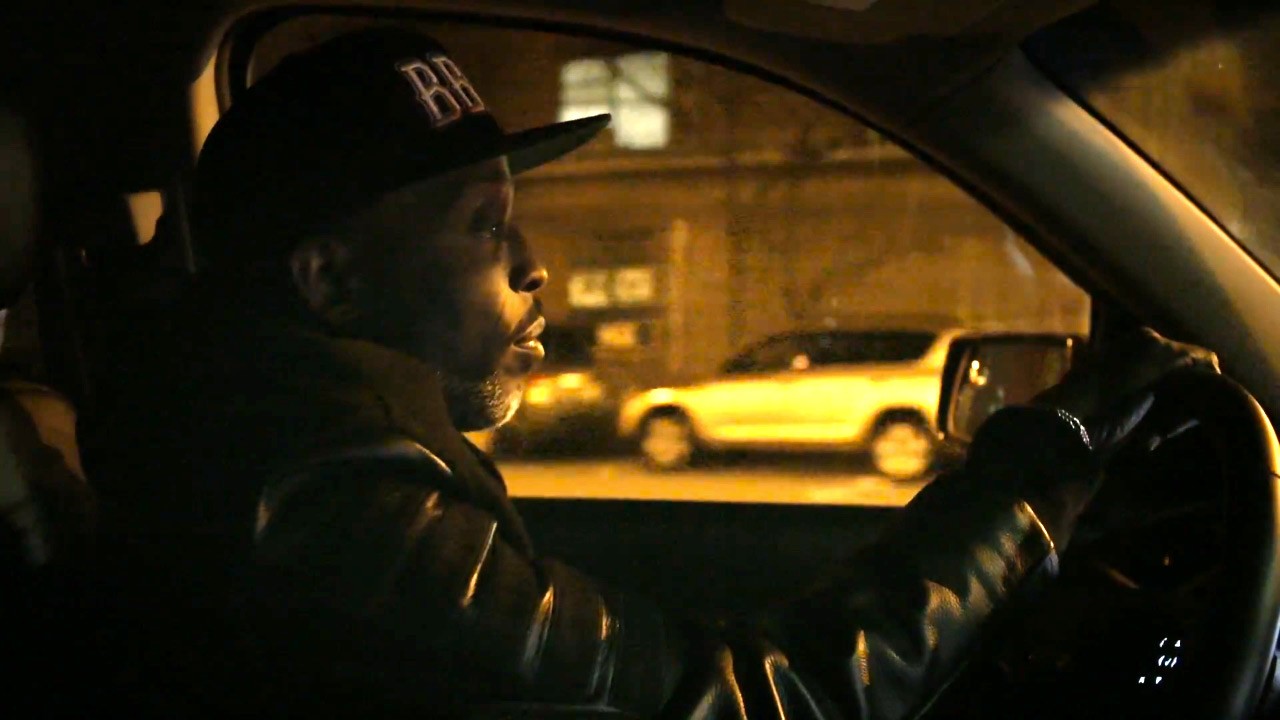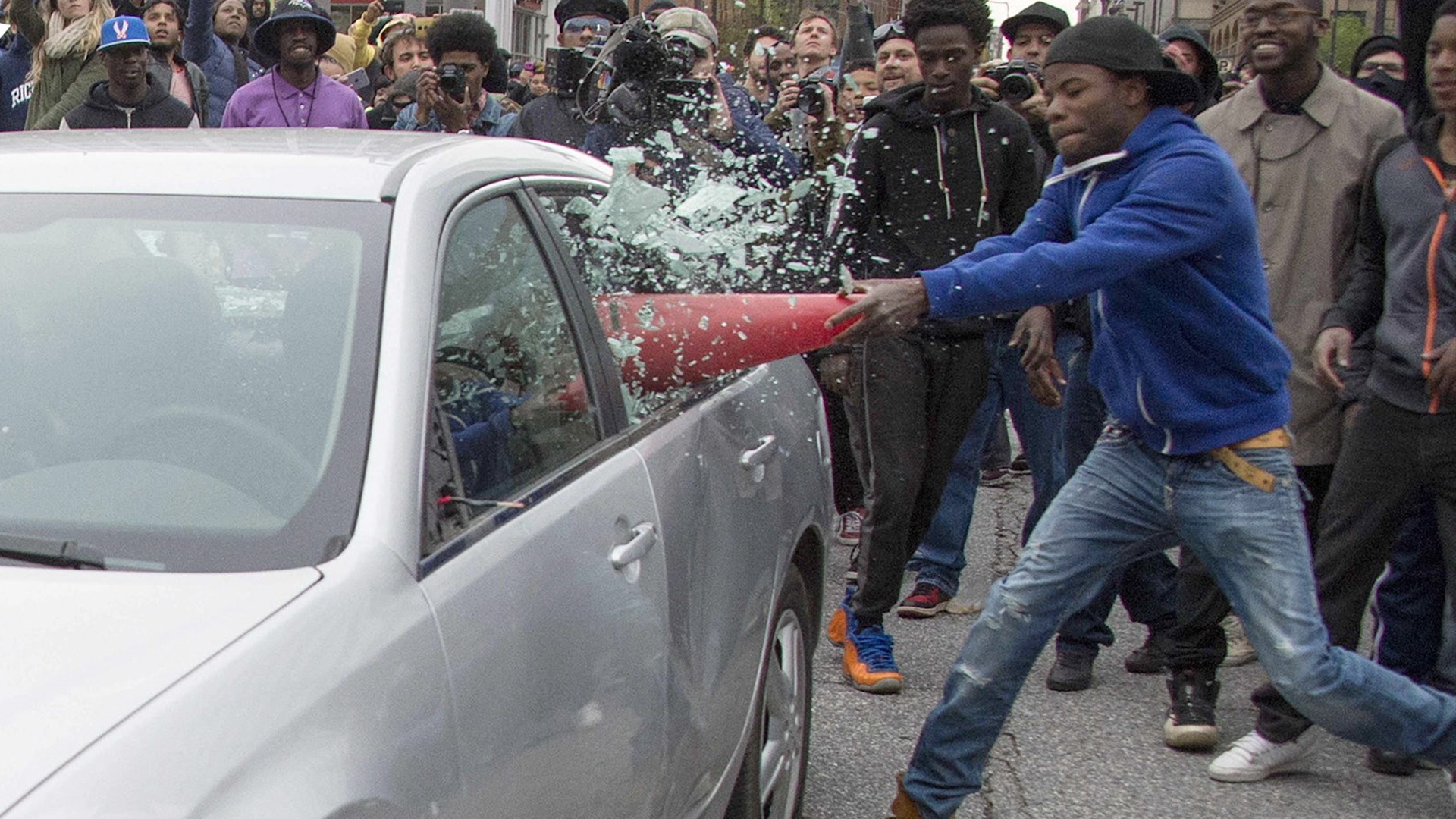Left Photo: Michael K Williams courtesy VICELAND. Right Photo: Mongkol Nitirojsakul / EyeEm via Getty Images
In Manhattan several weeks ago, a homeless man walked into a drug store and helped himself to a sandwich. When police arrested the man, who had been ordered to steer clear of the place, a prosecutor asked the judge to set a $15,000 bail. They might as well have asked for a million dollars. For this small crime, he likely would have spent the night, and many others, at Rikers Island. Fortunately, a kind member of the community intervened and paid his bail, which was ultimately set at between $500 and $1,000.

Selmin Feratovic was not as fortunate. After being accused of theft, he spent about seven months at Rikers Island while facing $50,000 bail. He had a drug problem but reportedly received no help, and over 200 days later, still awaiting resolution of his case and drug treatment, he overdosed and died.Then, most notoriously, there’s the case of Kalief Browder. As the New Yorker reported, at 16, Browder entered Rikers when he was accused of stealing a backpack. He spent the better part of three years there, much of that time in solitary confinement, and was beaten by at least one guard as well as other inmates—all because his family couldn’t pay pay his $3,000 bail. Prosecutors eventually dismissed the case, and Browder finally went home. He never felt free. He suffered from extraordinary anxiety and had flashbacks to his time at Rikers. After enrolling in school and showing signs of recovery, Browder succumbed to the torture that had defined his adolescence. He committed suicide in 2015.I grew up in Brooklyn in a neighborhood where we saw excess incarceration. An unfortunate reality is that every day in New York, we lock people up before trial—people who have not been convicted of a crime. We often do this simply because they cannot pay a get-out-of-jail fee. More likely than not, these are people of color and the poor: 88 percent of the people detained in New York city jails are Black or Latinx.This is an insane waste of money. In New York City alone, taxpayers spend an estimated $116 million per year to incarcerate people who cannot afford bail. This problem extends throughout the state. The dire reality compounds the waste of hundreds of millions of taxpayer dollars, because pretrial detention causes individuals to lose their jobs, housing, and custody of their children without making the justice system more efficient.Our money bail system in New York is tearing families apart. It is keeping people from earning a living, from taking their kids to school, from caring for loved ones, and from attending school themselves. In some cases, it is actually killing people. I’ve been visiting friends and family in prisons since I was 17 years old, and I have something to say about the process of how someone makes bad decisions, how they get treated in the system, how they come out of the system.It's simple: We can do something about this. States and cities across the country are advancing common-sense bail reforms. Washington DC. New Jersey. California. Houston. But New York is painfully behind, and the human toll is only growing: According to one estimate, on any given day, in New York City alone, an estimated 7,500 people are held in pretrial detention.

The state recently wasted another window of opportunity. This spring, legislation was pending in Albany that, if passed, would have drastically reformed New York’s justice system. Lawmakers were debating proposals to eliminate cash bail and thus decrease the profit incentives in the pretrial system. They also considered other critical pretrial reforms, such as enhancing protections for a person’s right to a speedy trial, potentially reducing or even eliminating the delays that keep people like Kalief Browder in jail before trial for unconscionable amounts of time. And they evaluated discovery reform to amend New York’s arcane law that allows prosecutors to keep their evidence to themselves until the eve of trial, ambushing the defense.These were not radical proposals—they were obvious and necessary if we were going to have anything that approaches a fair justice system in this state. They have been supported widely—by grassroots groups, athletes, musicians like John Legend, public defenders, members of Congress, advocates like Al Sharpton, and even Kalief Browder’s brother, Akeem.But time ran out. Although the Assembly passed measures that would have at least begun to address the state’s broken bail, speedy trial, and discovery laws, those bills did not make it through Senate and therefore were not enacted into law. The politicians failed, but the fight is far from over. It’s up to all of us to let them know that we want pretrial reform, and we want it now. With a highly public governor’s race going on and all 63 New York State Senate seats up for grabs in 2018, New York lawmakers will be listening now more than ever.Make sure they hear you.Sign up for our newsletter to get the best of VICE delivered to your inbox daily.
Advertisement

Selmin Feratovic was not as fortunate. After being accused of theft, he spent about seven months at Rikers Island while facing $50,000 bail. He had a drug problem but reportedly received no help, and over 200 days later, still awaiting resolution of his case and drug treatment, he overdosed and died.Then, most notoriously, there’s the case of Kalief Browder. As the New Yorker reported, at 16, Browder entered Rikers when he was accused of stealing a backpack. He spent the better part of three years there, much of that time in solitary confinement, and was beaten by at least one guard as well as other inmates—all because his family couldn’t pay pay his $3,000 bail. Prosecutors eventually dismissed the case, and Browder finally went home. He never felt free. He suffered from extraordinary anxiety and had flashbacks to his time at Rikers. After enrolling in school and showing signs of recovery, Browder succumbed to the torture that had defined his adolescence. He committed suicide in 2015.I grew up in Brooklyn in a neighborhood where we saw excess incarceration. An unfortunate reality is that every day in New York, we lock people up before trial—people who have not been convicted of a crime. We often do this simply because they cannot pay a get-out-of-jail fee. More likely than not, these are people of color and the poor: 88 percent of the people detained in New York city jails are Black or Latinx.
Advertisement

The state recently wasted another window of opportunity. This spring, legislation was pending in Albany that, if passed, would have drastically reformed New York’s justice system. Lawmakers were debating proposals to eliminate cash bail and thus decrease the profit incentives in the pretrial system. They also considered other critical pretrial reforms, such as enhancing protections for a person’s right to a speedy trial, potentially reducing or even eliminating the delays that keep people like Kalief Browder in jail before trial for unconscionable amounts of time. And they evaluated discovery reform to amend New York’s arcane law that allows prosecutors to keep their evidence to themselves until the eve of trial, ambushing the defense.These were not radical proposals—they were obvious and necessary if we were going to have anything that approaches a fair justice system in this state. They have been supported widely—by grassroots groups, athletes, musicians like John Legend, public defenders, members of Congress, advocates like Al Sharpton, and even Kalief Browder’s brother, Akeem.But time ran out. Although the Assembly passed measures that would have at least begun to address the state’s broken bail, speedy trial, and discovery laws, those bills did not make it through Senate and therefore were not enacted into law. The politicians failed, but the fight is far from over. It’s up to all of us to let them know that we want pretrial reform, and we want it now. With a highly public governor’s race going on and all 63 New York State Senate seats up for grabs in 2018, New York lawmakers will be listening now more than ever.Make sure they hear you.Sign up for our newsletter to get the best of VICE delivered to your inbox daily.
